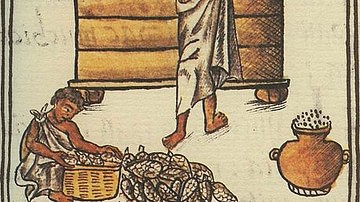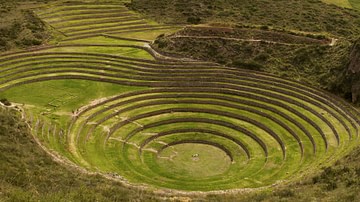Meals in the ancient Mediterranean revolved around the common staples of cereals, vegetables, fruit, and olive oil, with an occasional bit of fish and meat thrown in for those who could afford it. The Phoenicians and Greeks then spread their cuisine wherever they colonised, from the Black Sea to southern Spain, with the Romans doing likewise in subsequent centuries. Roman cooks were especially good at finding ways of preserving their food and adding more flavour using imported spices and garum, their fish sauce speciality. On the other side of the world in Mesoamerica, maize was king, even warranting its own god. Further south, the Incas were masters at sculpting their landscape to create high-yield terracing and networks of storage houses. In ancient Japan, rice was such an important food they not only had a national rice god but many locals ones, too. There, rice was prepared in all sorts of ways to make steamed plain rice, rice porridge, sweet rice jelly, and rice wine. In this collection of resources, we look at what ancient peoples grew, how they cooked, when they ate, and what were the religious and cultural associations of specific foods.
Food in the Inca world was prepared on fires of wood or llama dung using a stone or clay stove so that most food was either boiled or roasted. Maize was either cooked in the form of small cakes or toasted, while popcorn was considered a special treat.








